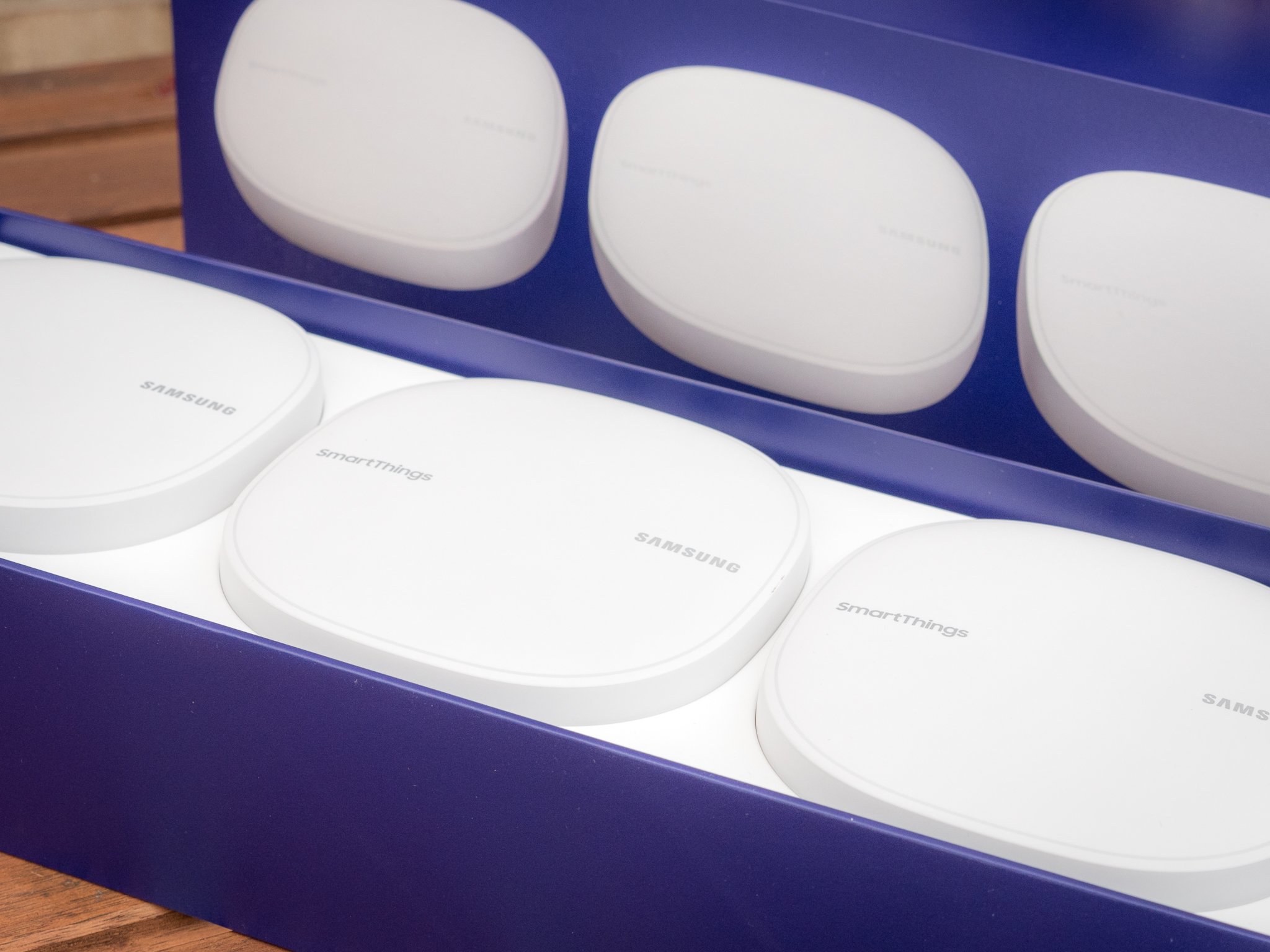
A good Wifi network needs to do three things:
It needs to work well. It needs to carry all my bits and bytes to all my devices as quickly as it can, over as large an area as I need it to.
And it needs to be easy to set up, and easy to maintain. Website-based setup screens should be on the way out, replaced by easy-to-use phone apps. And if the router doesn't update itself automatically, in the background, I'll probably think twice.
And it needs to mostly be invisible. It's 2018 — the router shouldn't be the focal point of a living room.
And the updated Samsung SmartThings Wifi mesh system — which the company sent me to check out — ticks all three of those boxes for me. And it throws in a smart home hub for good measure.
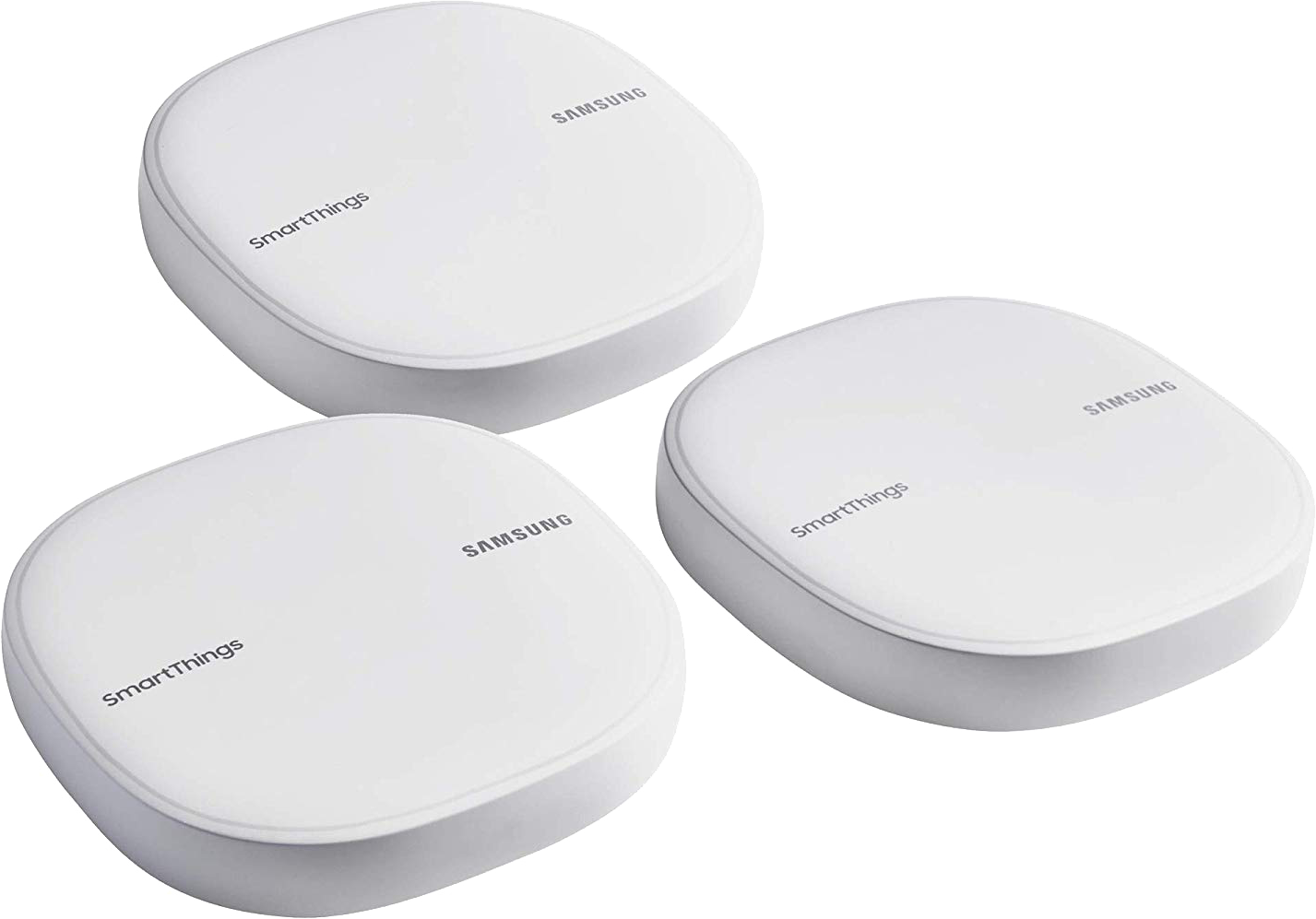
Price: $199 single, $279 3-pack
Bottom line: Samsung combines a mesh wireless system with a ZigBee and Z-Wave-capable smart home hub — with very good results.
The Good
The Bad
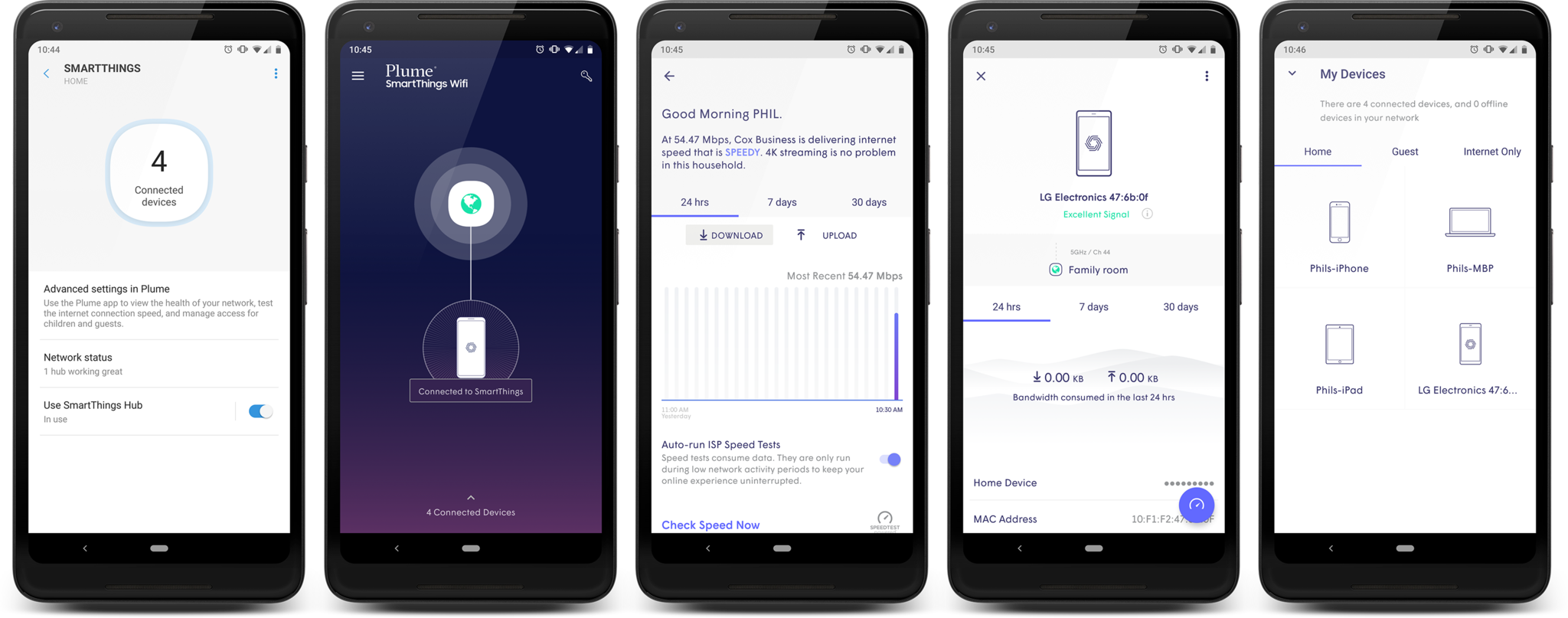
It's mostly easy
SmartThings Wifi What I Like
Here's the thing about most of the off-the-shelf mesh Wifi systems I've used — they're designed for folks who mostly just need great Wifi and don't want to really have anything to do with their home router. That's not a knock. That's a feature. While there are countless TV shows about being a better homeowner, you won't find any that really get into how to run your home network. (For that, there's YouTube, I guess.) Network nerds love networks. Nobody else does. Or should, probably.
Open up the Samsung SmartThings Wifi box and you'll find three (or one, if you bought a single) small boxes, roughly the size of a couple decks of cards. These aren't routers that look like they were designed by H.R. Geiger. These are decidedly Samsung products. Smooth, matte, small. The sort of thing you could leave on a bookshelf in a living room and not attract attention.
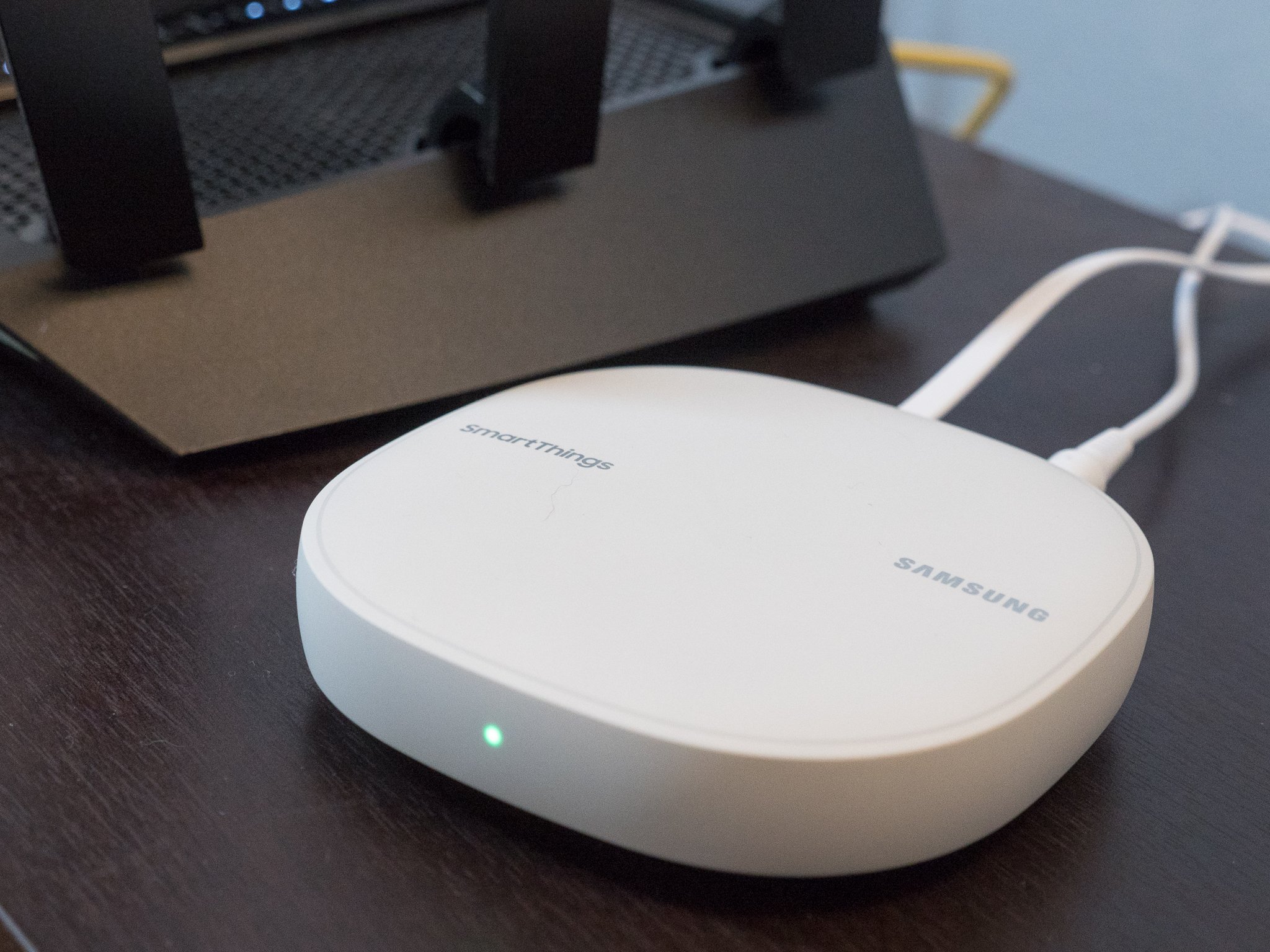
So that's the first hurdle covered. They don't stand out. They don't have garish antennas. Just a box, a plug, and a cable for running from your modem, and maybe run for running out into a switch, if you know what you're doing and need more hardwired options.
Setup also was pretty good. You sign in with your Samsung log-in — which isn't bad unto itself as it's a perfectly normal internet login, but it still just isn't as integrated on Android as a native Google login. Of course, not everybody uses Google for everything.
You'll use an Android or iOS device to set things up. It worked the first time for me, which isn't always the case when it comes to using a mobile device to set up a smart home device. So kudos to Samsung there.
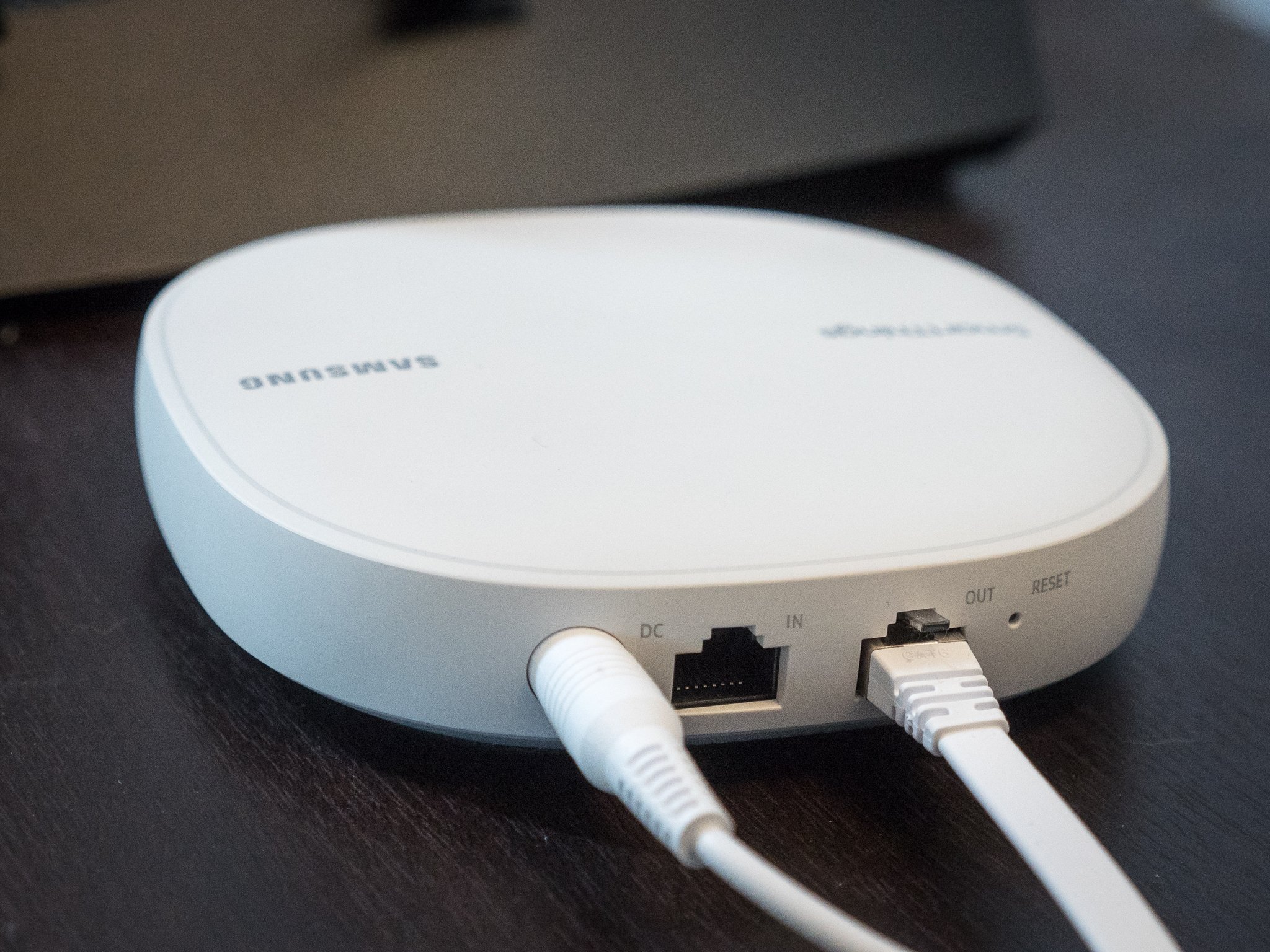
The apps do a good job walking you through available features, and they'll point you toward the advanced options, which are now powered by Plume. You can go as far into the rabbit hole as you'd like, but most folks will probably stop at "Does my internet work? Cool." You can control which devices get priority, if you're into that.
Most important? Automatic firmware updates. That's a big deal for security purposes, and it's something that any router you buy should have.
I somewhat question the decision to combine a smart home hub into a mesh system like this, but only because I presume that most folks who even know what ZigBee and Z-Wave are won't mind a router with more discrete controls — to say nothing of additional Ethernet ports. On the other hand, Samsung already had a SmartThings hub, and it makes complete sense to combine things here.
If you're a ZigBee or Z-Wave user, great. You've got support here. If you're not (and I'm not), it also doesn't get in the way.
The mesh components are going to very a good bit depending on your home setup. I've got a million devices in my house, but my home's floor plan isn't all that large, or that complicated. I don't actually make great use of a mesh network. If you're in the same situation, I'd recommend just starting with a single puck and see if it's got enough signal for your home.
And in that respect, Samsung's offering performed admirably. My Wifi speeds were as fast as with my Netgear Nighthawk R8000. Signal strength wasn't quite as strong at the edges, but that's not surprising given that they're two very different devices for different reasons. Mesh routers overlap the signal and create one network.
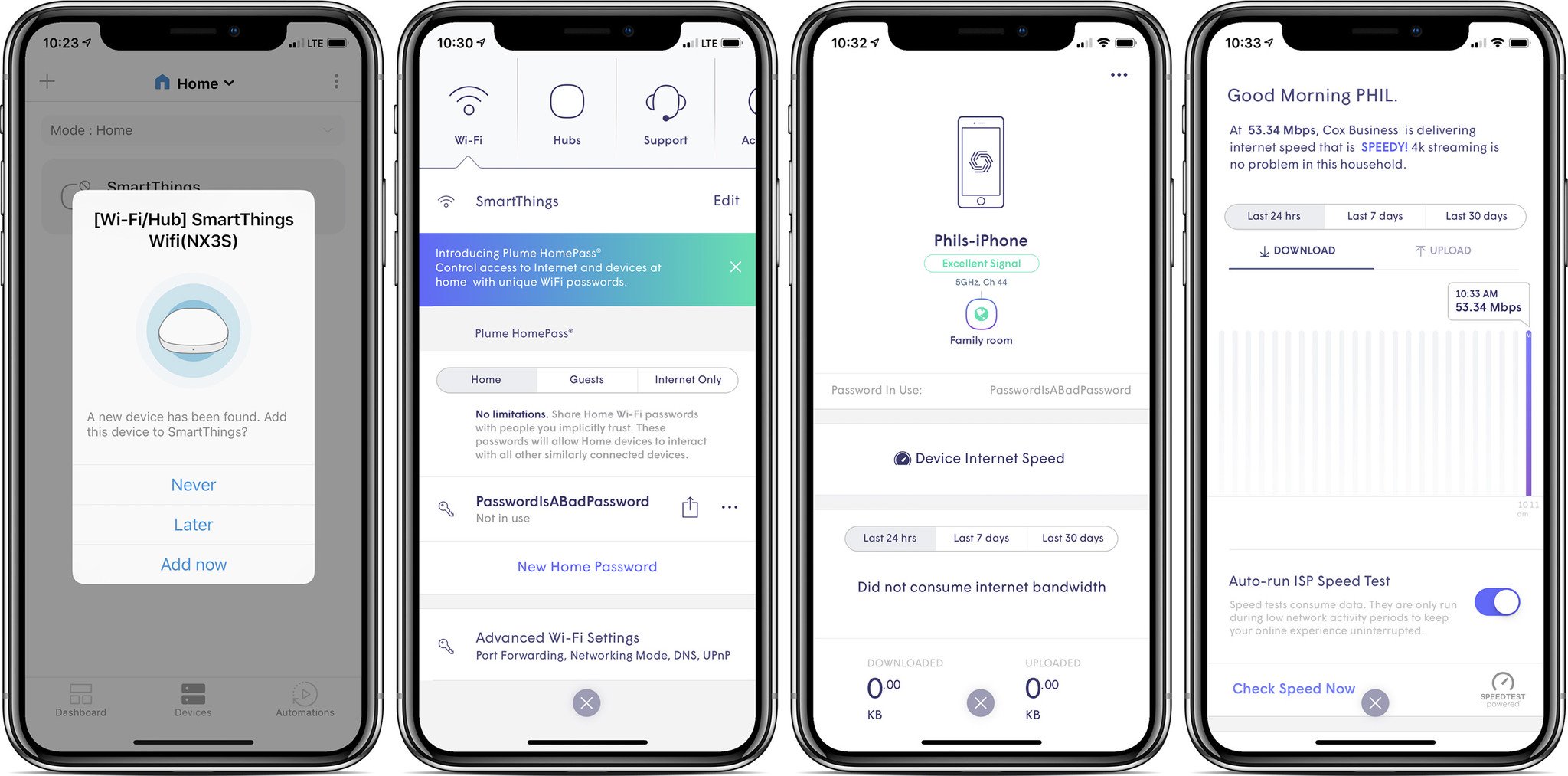
Not for hard-cord nerds
SmartThings Wifi What I Don't Like
There's really not much here to not like. That's a good thing. I could bemoan the lack of Ethernet ports, but that's like saying I'm disappointed the car I just bought isn't a truck. Again, this is really meant for someone who just wants good wireless capability.
The one true annoyance here comes when you dive deeper into the settings. Plume has been fully integrated into the Hub itself, but a lot of the advanced features still require you to use a separate Plume app if you want to do anything with them.
That's hardly the end of the world — it just seems like a silly annoyance.
Otherwise, there's not a whole lot else that stands out in a bad way.
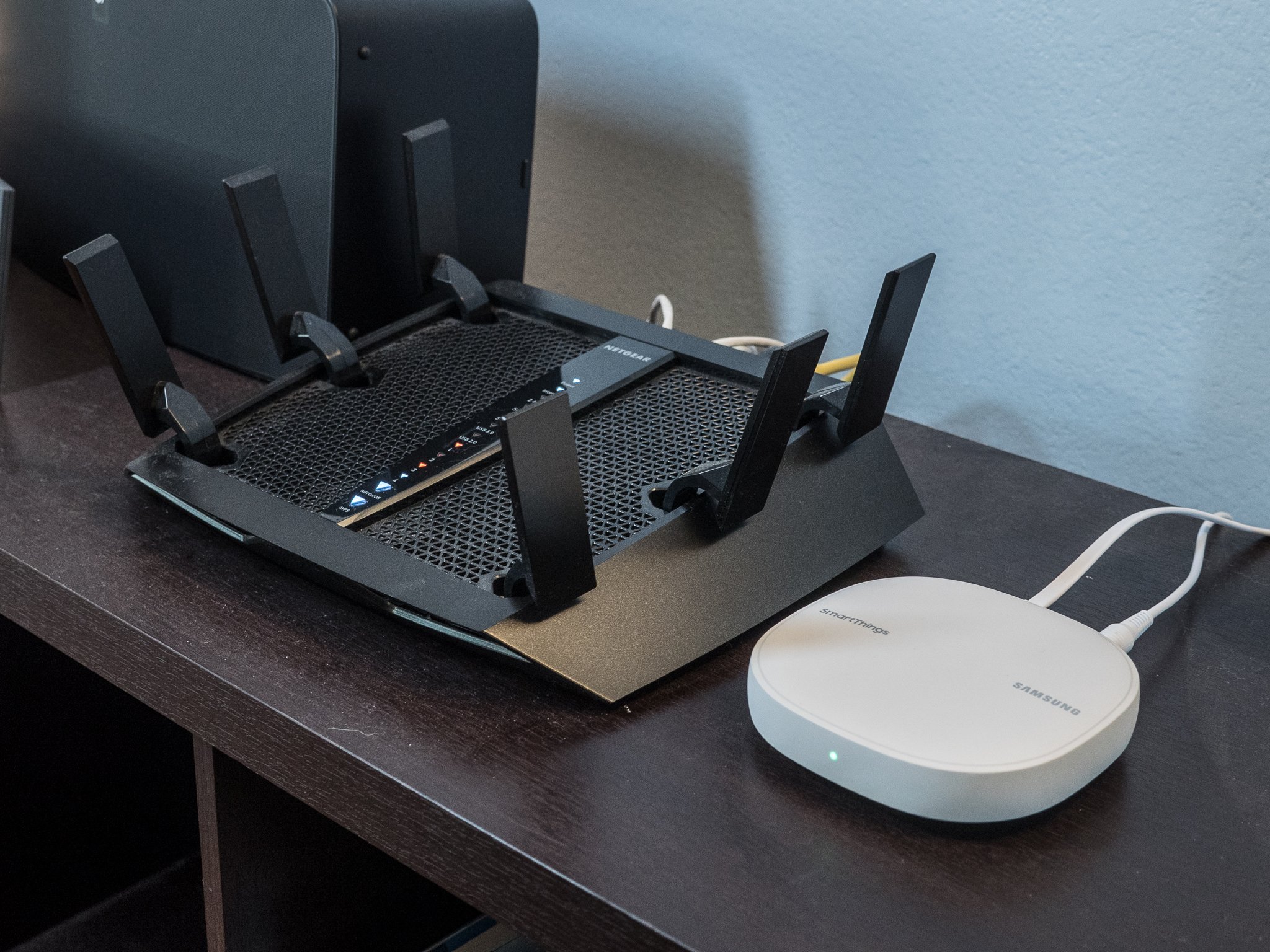
A good buy for simple use
SmartThings Wifi The Bottom Line
Samsung has a fine mesh system on its hands here. Whether you need one SmartThings Wifi hub, or three (or more!) depends on the size and layout of your home. Maybe you only need two. Maybe you need three or more.
And it's a reasonable system for a reasonable person. That is, someone who doesn't care what DNS is or worry about port forwarding and just wants a good system that works well and is easy to manage. Samsung's got that in its SmartThings app, for sure.
Me? I need a little more out of a router, and I don't mind a little extra manual management.










